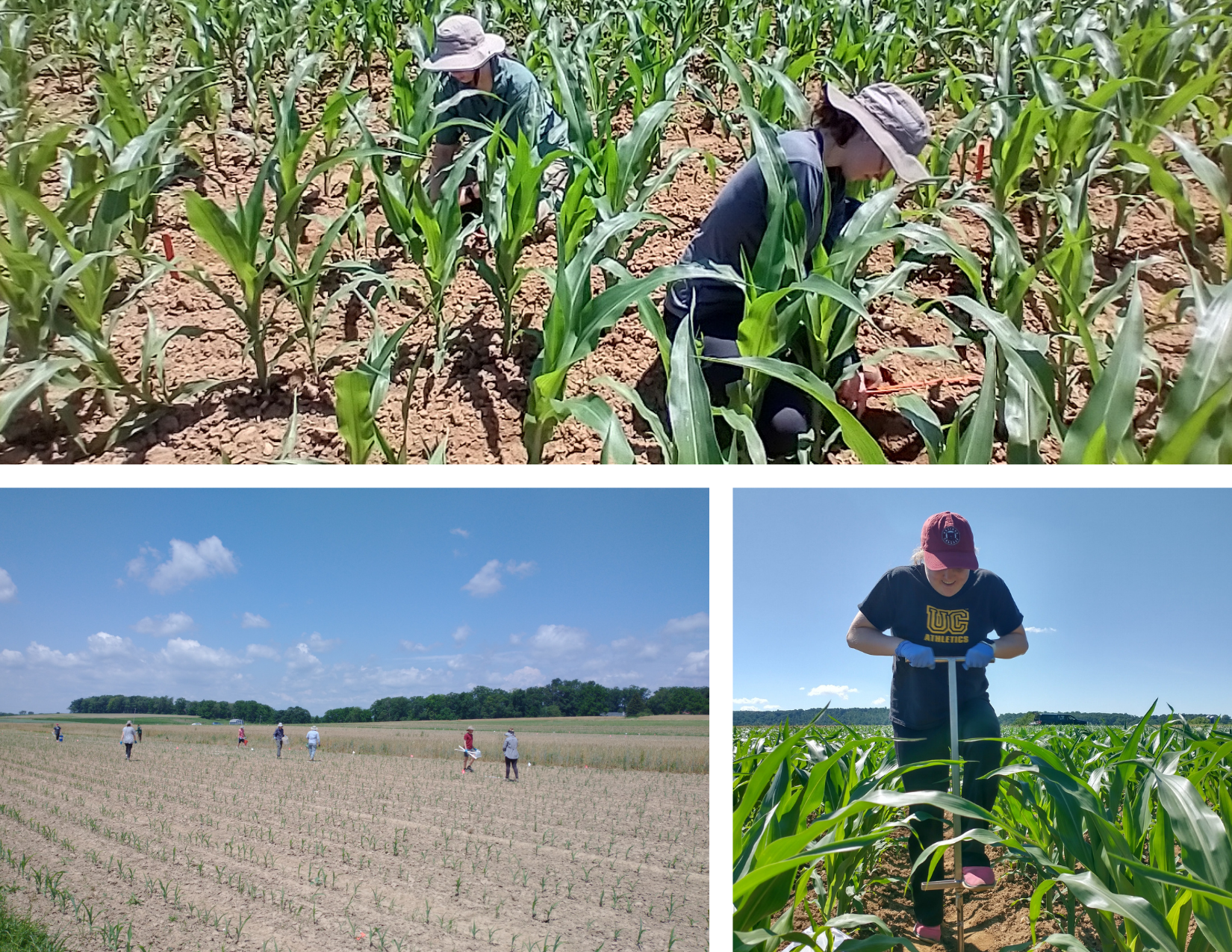
The capacity to predict plant-available nitrogen (N) accurately from cover crops and provide better estimations of N requirements could avoid yield loss from under application of N fertilizer and reduce environmental contamination due to overapplication. In addition, cover cropping is an important soil management practice to increase soil organic matter (SOM) and soil health. Predicting the release of plant-available N from cover crops and soil organic matter requires an understanding of all the factors that affect the microbial processes of decomposition and N mineralization, however. One key factor is the microbial carbon use efficiency (CUE), a critical property of the soil ecosystem that affects carbon (C) retention and N-mineralization. Therefore, CUE is an important component in understanding and unraveling questions about C and N cycles in agricultural systems.
CUE is the proportion of decomposed C used by microorganisms (as a food source) to increase their microbial biomass, in contrast to the C emitted during respiration or enzyme production. Higher values of microbial CUE are reflected when plant residue inputs are more effectively stabilized into the microbial biomass and ultimately soil organic matter. Is this good? Yes. Yet, how is this related to N availability? The efficient utilization of C to grow their microbial biomass demands greater microbial N assimilation because microbial biomass is generally made up from one part of N for every 10 parts of C. Hence, a higher CUE means less N from decomposing residues will be available to mineralize into ammonium and be available for plants to use. This makes microbial CUE a fundamental factor regulating N-mineralization rates. However, substantial literature shows that CUE varies according to the type of decomposing substrate (e.g., cover crop C: N ratio), environmental factors, soil inorganic N availability, and microbial community composition.
A new decision-support tool for predicting N-mineralization and adjusting N-fertilizer recommendations for corn that is being developed by the lab groups of Charlie White and Jason Kaye as part of the Thriving Agriculture project includes the effect of CUE on N-cycling. Values of CUE calculated by this tool are currently estimated according to soil texture. Development and improvement of the decision-support tool include the participation of farmer stakeholders, where they evaluate and give feedback on the tool using data from their farms to calculate N-fertilizer recommendations. To improve the decision support tool, we are conducting research to better understand and predict how the CUE is affected by different on-farm practices (e.g., cover cropping, N fertilizer additions) and inherent soil properties (soil texture variation). This work will allow farmers to estimate N-mineralization better and adjust N fertilizer applications to meet cash crop demands more closely, which is an important step towards increase nitrogen use efficiency in agricultural systems, one of the key goals of the Thriving Agriculture project.
Currently, two on-farm experiments and three experiments on the research farm are established. Baileigh Rosado, Rachel Fedorko, Zack Sanders, Raziel Ordonez, Brosi Bradley, Madeline Colen Sorber, Ezra Raupach-Learn, Dana Sanchez from Penn State University, Leidy Fernandez from the University of Puerto Rico, and Elizabeth Willard, Austin Mickles, and Julie Cherneskie from Ursinus College contributed to experiment establishment and data collection. Wade Esbenshade and Carl Schmidt host on-farm trials. The preliminary results will be shared during this fall. If you feel interested in receiving more information about this research, write to Zoelie Rivera-Ocasio (zxr81@psu.edu), or to Charlie White (cmw29@psu.edu).